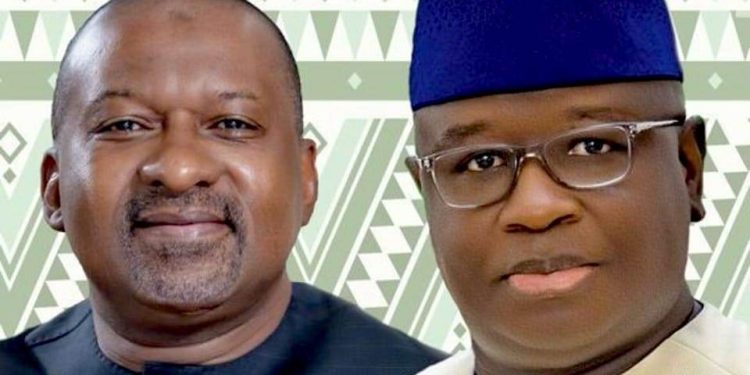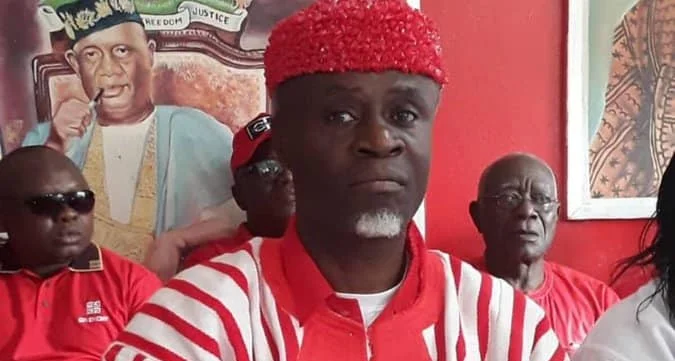Since President Julius Maada Bio’s rise to power in 2018, the Sierra Leone People’s Party (SLPP) has faced significant internal strife. The party, which once appeared unified under Bio’s leadership, is now grappling with deep-seated power struggles. The current conflicts within the SLPP, the roots of these disputes, their implications for the party’s future, and their impact on Sierra Leone’s political landscape is greatly at risk as the party continues to sink amid disarray.
The SLPP’s victory in the 2018 elections marked a new chapter for Sierra Leone, bringing Julius Maada Bio to the presidency. Initially, the party appeared cohesive, rallying around Bio’s reformist agenda and his promise to address corruption and enhance governance. This unity was reflected in their early successes and a generally positive public reception. However, there is evidence that key contenders for succeeding Bio in 2028 have already started their closed-door campaigns to grassroots and university students. These primary campaigns are always accompanied by huge tokens and unfulfilled promises, creating the atmosphere for more rivalry.
However, as Bio’s administration progresses, cracks have started appearing in the SLPP. The following factors have contributed to the current power struggles:
Leadership Disputes: Bio’s leadership style, characterised by rapid reforms and a centralisation of power, has led to tensions with various factions within the party. Some members feel side lined or excluded from decision-making processes, leading to dissatisfaction and calls for greater inclusivity.
Ambitions for Succession: As Bio’s second term progresses, speculation about his potential successor has intensified. Key figures within the SLPP are manoeuvring to position themselves as viable candidates for future leadership. This jockeying for position has intensified internal competition and fuelled factionalism.
Policy Disagreements: Disagreements over policy directions and implementation strategies have exacerbated divisions within the party. Disputes over economic policies, anti-corruption measures, and governance reforms have led to public and private disagreements among party leaders.
Meanwhile several prominent figures are at the centre of the current power struggles:
The Chief Minister: As one of Bio’s closest allies, the Chief Minister has been a key player in the administration’s policies. However, his ambition to succeed Bio has created friction with other factions that view his rise as a threat to their own aspirations.
Opposition Leaders within the Party: Some senior SLPP members have voiced concerns to FORUM about Bio’s governance style and the direction of the party. These individuals advocate for a return to more democratic internal processes and a greater focus on party unity.
Youth and Grassroots Leaders: The younger generation and grassroots leaders are increasingly vocal, demanding greater representation and influence in the party. Their push for reform reflects a broader desire for a more inclusive and democratic SLPP.
The internal struggles within the SLPP have several significant implications:
Governance and Policy Impact: The on-going power struggles have led to policy paralysis and delays in key initiatives. The lack of cohesion within the party has made it challenging to implement and sustain coherent policies.
Electoral Prospects: The internal turmoil poses risks for the SLPP’s electoral prospects. Fragmentation and public infighting could weaken the party’s appeal and provide opportunities for opposition parties to capitalise on their divisions.
Democratic Health: The power struggles within the SLPP highlight broader issues related to democratic governance and political stability in Sierra Leone. The ability of political parties to manage internal disputes and maintain unity is crucial for the health of the country’s democracy.
The current power struggles within the SLPP represent a critical juncture for both the party and Sierra Leone’s political future. As internal factions vie for influence and control, the ability of the SLPP to navigate these conflicts will determine its effectiveness and stability in the years to come. For Sierra Leone, the outcome of these power struggles will have far-reaching implications for governance, electoral dynamics, and the overall democratic landscape. The challenge now lies in finding a path forward that addresses internal divisions while upholding the principles of democratic governance and effective leadership.
As the Sierra Leone People’s Party (SLPP) navigates its current internal upheavals, the stakes extend beyond mere party politics. The factional infighting, driven by leadership disputes, succession ambitions, and policy disagreements, threatens to undermine the party’s stability and effectiveness.
With Sierra Leone’s democratic future hanging in the balance, the SLPP faces a pivotal challenge: to reconcile its internal differences and forge a path that not only restores party cohesion but also strengthens its role in governance. The resolution of these power struggles will not only shape the SLPP’s future but also influence the broader political landscape of Sierra Leone, determining whether the country will experience a new era of stability and reform or fall into further political fragmentation.
The coming years will be crucial in defining the SLPP’s legacy and its impact on Sierra Leone’s democratic evolution, more so in 2028.













